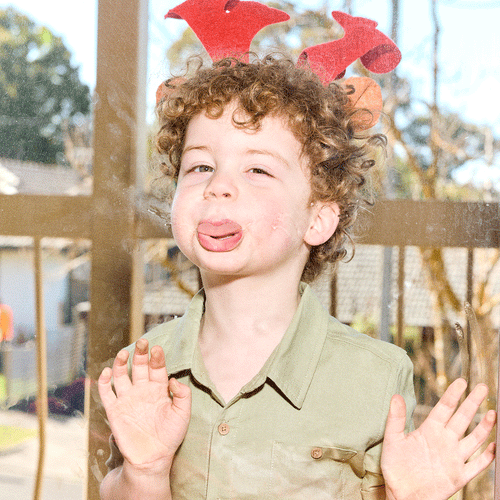It’s a fact that the holidays will generate big feelings. There’s so much newness: people, places, things, and excitement: friends, presents, Santa!!! The first step to parenting little children through this time is to accept that tantrums and disregulated behaviour will happen, and not let it get to you or cause you to lose it. They are trying their best, and honestly, who hasn’t gotten a little worked up over a big event? Nothing to wear, running late, food didn’t come out right, someone’s gift didn’t make the drive. We’ve all been there. With acceptance out of the way, there are, ofcourse, a few things we can do to set our little ones (and ourselves) up for success when the big feelings come this holiday season.
1. Prep ‘em
Giving your toddlers and preschoolers lots of information about the holiday plans will significantly help them. If they know what’s happening, they are much more likely to enjoy them rather than feel overwhelmed. In practice, this literally mean telling them what you’ll be doing on the days of the big events, where you’ll go, how you’ll get there, who will be there: “On Christmas morning, we’ll go downstairs and see if there are any presents under the tree, and then we’ll have breakfast, put on our special outfits and go to Grandma’s house!” Older toddlers will have a lot of questions, “Will we give Grandma a present?”, “Will Santa still be in the house?”, “Can I still wear my pyjamas while I have breakfast?”, take time to listen to these queries and answer them all (no matter how tedious, irrelevant or repetitive they are) Then, keep going over it. That toddler brain benefits from repetition so, so much.
2. Get your game face on, in advance
Parenting can serve up a smörgåsbord of judgement, perceived or real. It’s good to think about how you’ll deal with this before it happens. “The most important thing to do is be wary that the way we see the world, affects the way we feel, and how we interpret something that’s been said, might not be how it was meant. It can be helpful to practise tuning into your perceptions and question whether what was said or done was grounded in reality,” says psychologist Caitlin Arthur, “However, if someone does make a comment that feels unkind or judgey, you have a choice to let it go and remain confident that you are making the best choice for your child because you know them best, or politely inform the person that those comments just aren’t helpful. Tell them that the early years of parenting are really hard, and hearing about the things you’re doing really well with would be much more helpful." At the end of the day, you are the best parent for your child and there is no bigger influence on them than you.
3. Be ready to talk about consent
Family and friends may expect your kids to give them hugs ‘hello’, kisses ‘goodbye’ or other physical affection. There’s nothing wrong with physical affection, but it’s important that it isn’t forced on them. We want to empower our kids to feel confident in not letting someone touch them if it makes them feel uncomfortable. Encouraging that but then telling them to touch an adult in another scenario is understandably confusing for them. The experts say to respect their “no” by giving them a choice. Rather than, “come give Grandad a hug,” offer, “would you like to give Grandad a hug?”. If they decline, offer a non-physical gesture, “That’s OK, why don’t we wave to Grandad instead?” Similarly, if a relative is offering to sit with your child during Christmas lunch or to watch the family cricket game, allow your toddler the choice, “Would you like to sit on Aunty Sarah’s lap or next to her?”
4. Use the timer trick for transitions
Spoiler: Toddlers aren’t great with transitions. Particularly when they’re in the midst of their first play with a new toy and you tell them they have to get in the car. This is often frustrating for parents, but put yourself in their shoes: you’re watching your favourite show, with no other care in the world, and suddenly someone is yelling at you to get up, leave your beloved characters and get in the car to do who knows what. It’s not a good time! A simple timer can help a lot. The “timer trick” recommended by Big Little Feelings let’s kids have warning and participate in making a transition. All you need to do is set the timer for a few minutes, tell them exactly what will happen when the timer goes off, give them some age-appropriate power by letting them set the timer, and when it goes off, acknowledge any disappointed feelings while still sticking to the original boundary.
5. Feed them beforehand
Parties and events are often at odd times, and don't always cater for little kids. Plus, trying to get them to focus on eating in the middle of the excitement is near impossible. Instead fill them with good stuff you know they’ll eat before you head out. That way you'll avoid hangry meltdowns and (hopefully) sugar overloads.
6. Just add water
Water works wonders on wound-up kids. When things get too much for them, or if you see it coming, take them aside for a glass of water and a reset. If they don't want a drink, ask them to help you water a plant, wash your hands and face, just a little reset and check-in with them.
























